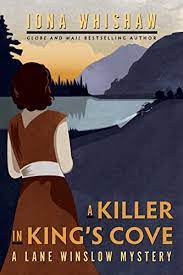Murder, She Writes

Art by Laura Catalán
In need of something that had nothing to do with the state of the world, I found Wendelin Van Draanen’s recent middle grade mystery, Mr. Whiskers and the Shennanigin Sisters, and entered a world of an old, mysterious house (with secret passages!), two tenacious sisters, a father gone missing, pirate treasures and more–all told through the unique perspective of a dog. That’s right. This book is from a dog’s point of view.
Not just any dog, but a clever, street-smart, and all-around good boy.
Van Draanen is a popular writer who has published many children’s books, including the popular Sammy Keyes series. Her mastery of the middle grade is evident in this story. When Misty and Zelda’s dad gets ordered away by some suspiciously bogus FBI agents, it’s up to Mr. Whiskers and the sisters to save the day. In an old San Francisco boarding house where the sisters live, they find clues and old pirate secrets that lead them to their dad.
The voice of Mr. Whiskers was especially fun because Van Draanen creates an authentic sense of a dog’s point of view with some creative woofy puns. Obviously, this dog is not the only animal perspective in middle grade, but I found it interesting here because Mr. Whiskers must interact with humans, who do not always understand his clever insights.
The book begins with a whiff of danger:
I smelled trouble. It came driftin’ in off a fella on the sidewalk outside and tickled up my schnoz clear down to my paws
I hope this one becomes a series!





